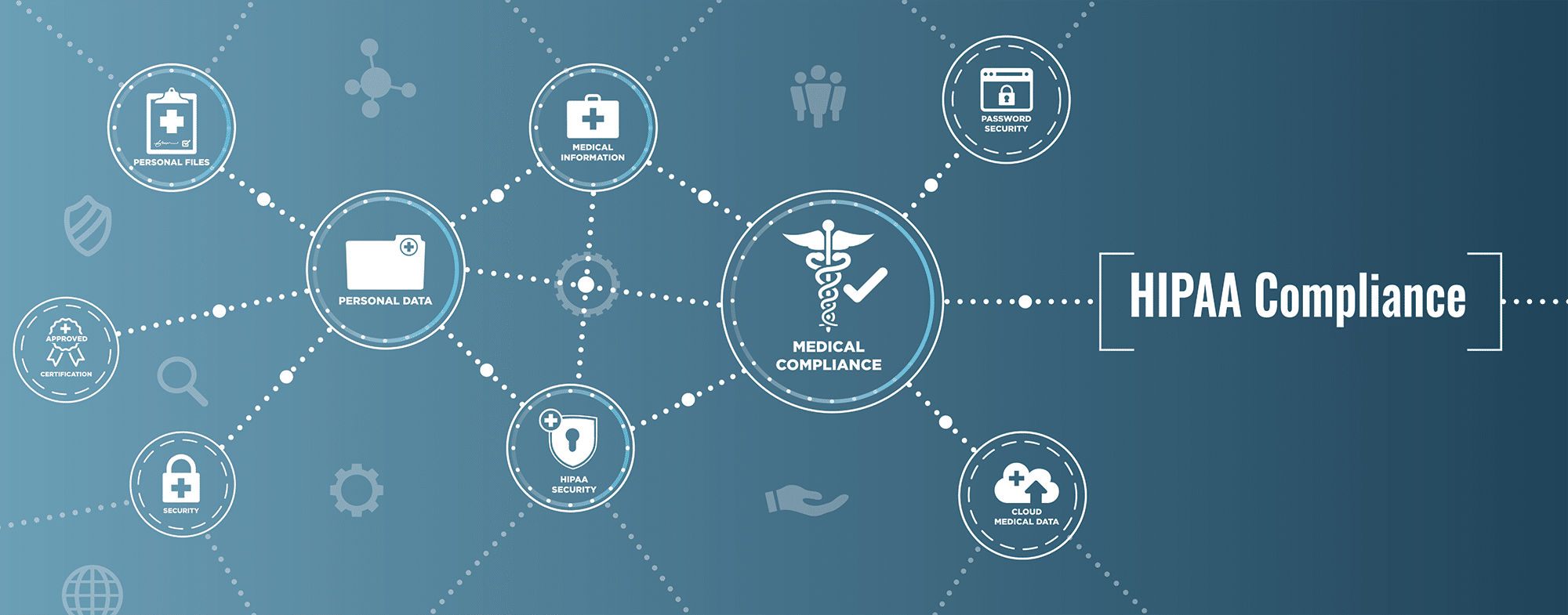In today’s digital age, healthcare cybersecurity is more important than ever. Healthcare organizations are responsible for storing and protecting sensitive patient information, making them a prime target for cyberattacks. As such, healthcare organizations should invest in cybersecurity services to ensure the protection of patient information and prevent costly data breaches.
In this article we will explain the importance of cybersecurity in the healthcare industry, examine the benefits of cybersecurity services in healthcare, and go over some of the best practices for implementing healthcare cybersecurity solutions.
The Importance of Healthcare Cybersecurity
Healthcare organizations need to protect sensitive patient information from unauthorized access, theft, or destruction. With the rise of cyber threats, healthcare organizations are becoming increasingly vulnerable to cyberattacks. Data breaches can result in the loss of confidential information, the breach of patients’ privacy, and the loss of public trust.
Healthcare organizations are also subject to regulations such as the Health Insurance Portability and Accountability Act (HIPAA), which requires them to maintain the privacy and security of patient information. HIPAA regulations dictate the appropriate use and disclosure of patient information, and failure to comply with these regulations can result in hefty fines and loss of public trust.
Cyberattacks on healthcare organizations can result in more than just the loss of patient information. They can also result in operational disruptions and financial losses. A cyberattack on a healthcare organization’s IT systems can cause significant downtime, leading to the cancellation of appointments and procedures. This not only impacts patients but also results in financial losses for the organization.
Benefits of Healthcare Cybersecurity Services
With the increasing threat of cyberattacks, healthcare organizations should take proactive measures to protect sensitive patient information from unauthorized access, theft, or destruction. Investing in healthcare cybersecurity services provides organizations with a comprehensive solution to mitigate cybersecurity risks and maintain the privacy and security of patient information.
Here are some benefits associated with Healthcare Cybersecurity Services:
Enhanced security measures
Cybersecurity services provide organizations with advanced security measures such as firewalls, intrusion detection, and encryption to protect against cyberattacks. These measures act as a barrier to prevent unauthorized access to sensitive patient information and ensure the confidentiality and privacy of patient data.
Real-time monitoring and threat detection
Healthcare cybersecurity services offer continuous monitoring and threat detection to identify and respond to potential security incidents in real-time. This helps organizations stay ahead of emerging threats and respond quickly to prevent data breaches and minimize damage.
Data backup and recovery
In the event of a data breach or cyberattack, healthcare cybersecurity services provide organizations with the ability to recover lost or stolen data. This helps minimize the impact of data breaches and ensures the continuity of patient care. With data backup and recovery in place, healthcare organizations can quickly restore their systems and continue to provide essential patient care.
Expert support and guidance
Cybersecurity services provide organizations with expert support and guidance to help them understand and mitigate cybersecurity risks. This includes regular security assessments, training and education programs, and guidance on best practices for protecting sensitive patient information.
Past News-Worthy Attacks That Could Have Been Prevented
Healthcare organizations need to understand the potential consequences of a data breach or cyberattack. In the past, there have been numerous news-worthy attacks that have resulted in the loss of sensitive patient information.
For example, in 2014, a cyberattack on Community Health Systems resulted in the theft of 4.5 million patient records. Had the organization invested in cybersecurity services, the attack could have been prevented and the loss of sensitive patient information avoided.
Another example is the 2017 WannaCry ransomware attack that affected the National Health Service (NHS) in the United Kingdom. The attack resulted in the shutdown of numerous hospitals and clinics, leading to the cancellation of thousands of appointments. Had the NHS invested in cybersecurity services, the attack could have been prevented.
Best Practices for Implementing Healthcare Cybersecurity Services
Implementing cybersecurity services in healthcare organizations requires a comprehensive approach that involves assessing the organization’s cybersecurity needs, selecting the right solutions, and implementing them effectively. Here are some best practices for implementing healthcare cybersecurity services:
Assess your cybersecurity needs
Assessing your organization’s cybersecurity needs is the first step in implementing effective cybersecurity services. This involves identifying the types of data you store, the risks you face, and the vulnerabilities in your current security systems.
During the assessment, organizations should consider the following:
- The types of data stored, such as patient medical records, financial information, and personal data.
- The risks faced, including cyberattacks, data breaches, and theft of sensitive information.
- The current state of the organization’s security systems, including firewalls, intrusion detection systems, encryption, and access controls.
- The vulnerabilities in the current security systems, such as weak passwords, unpatched software, and outdated security protocols.
The assessment process helps organizations identify their specific cybersecurity needs and develop a comprehensive strategy for protecting against cyberattacks.
Choose the right solutions
Choosing the right cybersecurity services is critical to the success of the implementation. Organizations should select solutions that meet their specific needs and budget, taking into account the types of data stored and the risks faced.
Some factors to consider when choosing cybersecurity solutions include:
- The level of security provided, including the use of firewalls, intrusion detection systems, encryption, and others.
- The cost and feasibility of implementation, including the need for additional hardware, software, or personnel.
- The level of support and guidance provided, including training and education for employees, and ongoing security assessments.
Organizations should work with cybersecurity experts to determine the best solutions for their specific needs and budget.
Implement security technologies
Implementing the selected cybersecurity technologies is a critical step in the implementation process. Organizations should ensure that the security technologies are properly configured and updated regularly to ensure maximum protection against cyberattacks.
This includes updating software, patching vulnerabilities, and configuring firewalls and intrusion detection systems to meet the organization’s specific needs. When in doubt, it’s always a good idea to consult with a cybersecurity specialist to make sure that these systems are configured correctly.
Train and educate employees
Training and educating employees on cybersecurity best practices is another important aspect of the implementation process. Employees play a critical role in protecting sensitive information, and they must understand the importance of cybersecurity and the role they play in protecting patient information.
Organizations should provide regular training and education on cybersecurity best practices, including how to detect and respond to cyberattacks, and the importance of secure data management. They should also educate employees on the dangers of phishing attacks, password security, and safe internet usage.
Develop an incident response plan
Developing a comprehensive incident response plan is a critical component of any healthcare cybersecurity program. This plan outlines the steps to be taken in the event of a cybersecurity incident, helping organizations respond quickly and effectively to minimize the damage and protect sensitive patient information.
The incident response plan should include the following elements:
- A designated incident response team: A designated team of individuals responsible for responding to cybersecurity incidents and implementing the incident response plan.
- A clear chain of command: A clearly defined chain of command for decision-making and response actions during an incident.
- Incident notification procedures: A process for quickly and effectively notifying relevant stakeholders, including employees, patients, and law enforcement, in the event of an incident.
- Containment and eradication procedures: Procedures for containing and eradicating the impact of a cybersecurity incident, including steps to prevent the spread of malware and the preservation of evidence.
- Evidence collection and analysis procedures: A process for collecting and analyzing evidence related to the incident to support investigations and legal proceedings.
- Post-incident review process: A process for conducting a post-incident review to assess the effectiveness of the incident response plan and identify areas for improvement.
Having a well-defined incident response plan in place can help organizations respond to cybersecurity incidents in an organized and effective manner, reducing the impact on sensitive patient information. Regularly reviewing and updating the plan can ensure that it remains effective and relevant in the face of evolving cybersecurity threats.
Key Takeaways
Healthcare organizations should invest in cybersecurity services to ensure the protection of sensitive patient information and prevent costly data breaches. With enhanced security measures, real-time monitoring and threat detection, data backup and recovery, and expert support and guidance, healthcare cybersecurity services provide organizations with the tools and resources they need to protect against cyberattacks.
Next Steps
If you require assistance securing your Healthcare organization’s computer networks, then BlueSteel Cybersecurity can help. BlueSteel is an industry leader in cybersecurity risk assessments, application security and penetration testing, compliance preparation, and much more. By working with the experts at BlueSteel, you can safeguard your sensitive data and better protect your patient’s privacy.







